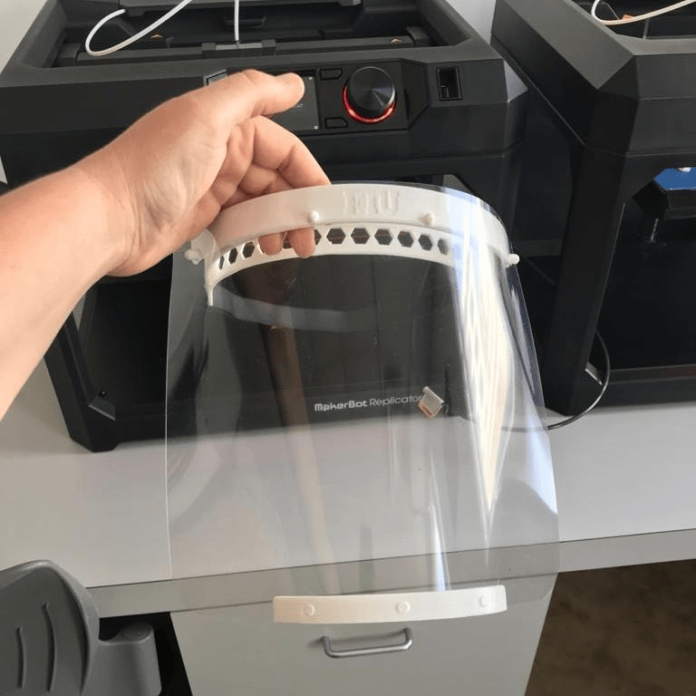In response to the shortage of personal protective equipment (PPE) for health workers treating patients during the coronavirus pandemic, Florida International University (FIU) and Baptist Health South Florida have partnered to 3D-print reusable face shields.
Face shields are part of the personal protective equipment that healthcare workers at Baptist Health wear when caring for patients who have or are suspected to have COVID-19. Baptist Health has 11 hospitals and more than 150 urgent care centers and physician offices in the four-county area from Monroe to Palm Beach counties.
FIU’s College of Communication, Architecture, + The Arts (CARTA) is at the center of the initiative, mobilizing its 3D printing facilities, faculty, staff and students to produce a minimum of 1,000 face shields for Baptist Health. More than 30 3D printers housed in the college’s CARTA Innovation Lab in the Miami Beach Urban Studios (MBUS) are printing the protective equipment, as well as additional printers in the CARTA Robotics and Digital Fabrication Laboratory and the College of Engineering & Computing.
“As a university we wanted to find a way to leverage the skills, talent and resources of our students, faculty and staff to help these hard-working heroes who are risking their lives to save ours,” said FIU President Mark B. Rosenberg. “I’m proud of our collaboration with Baptist Health and hope it will pave the way for more opportunities to make a difference during these difficult times.”
“Out of adversity creates opportunity,” said Dr. Barry T. Katzen, founder and medical director of Miami Cardiac & Vascular Institute, who has long been a leader in innovation at Baptist Health. “This partnership with FIU is community collaboration at its best, bringing together an academic institution and a healthcare system by using innovation during a time of urgent need.”
The face shields, made from non-toxic PLA (polylactic acid), are meant to act as a first line of defense for healthcare workers. With the shortage of masks, the shield is worn over the mask to preserve their longevity as well as prevent infected respiratory droplets from entering workers’ nose and eyes.







Comments are closed.